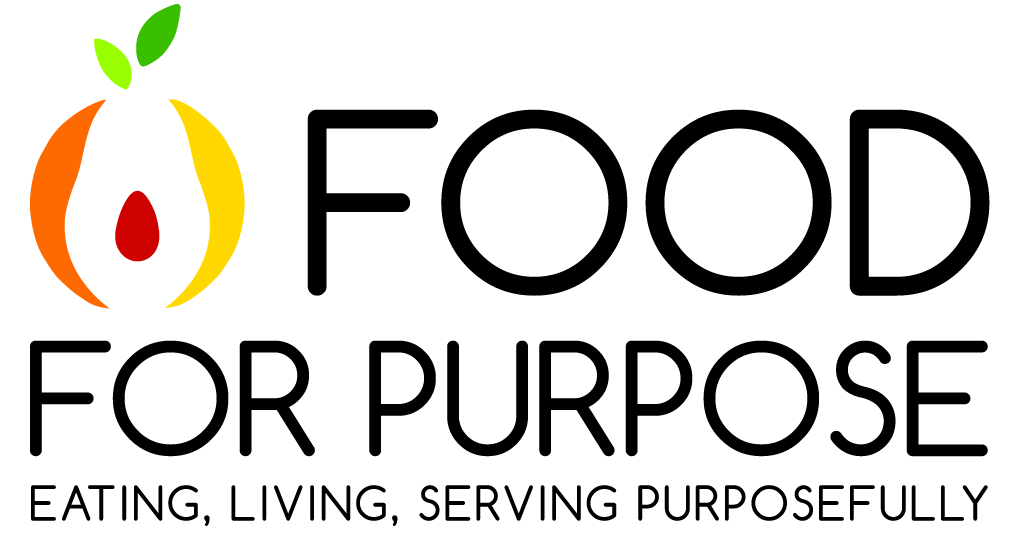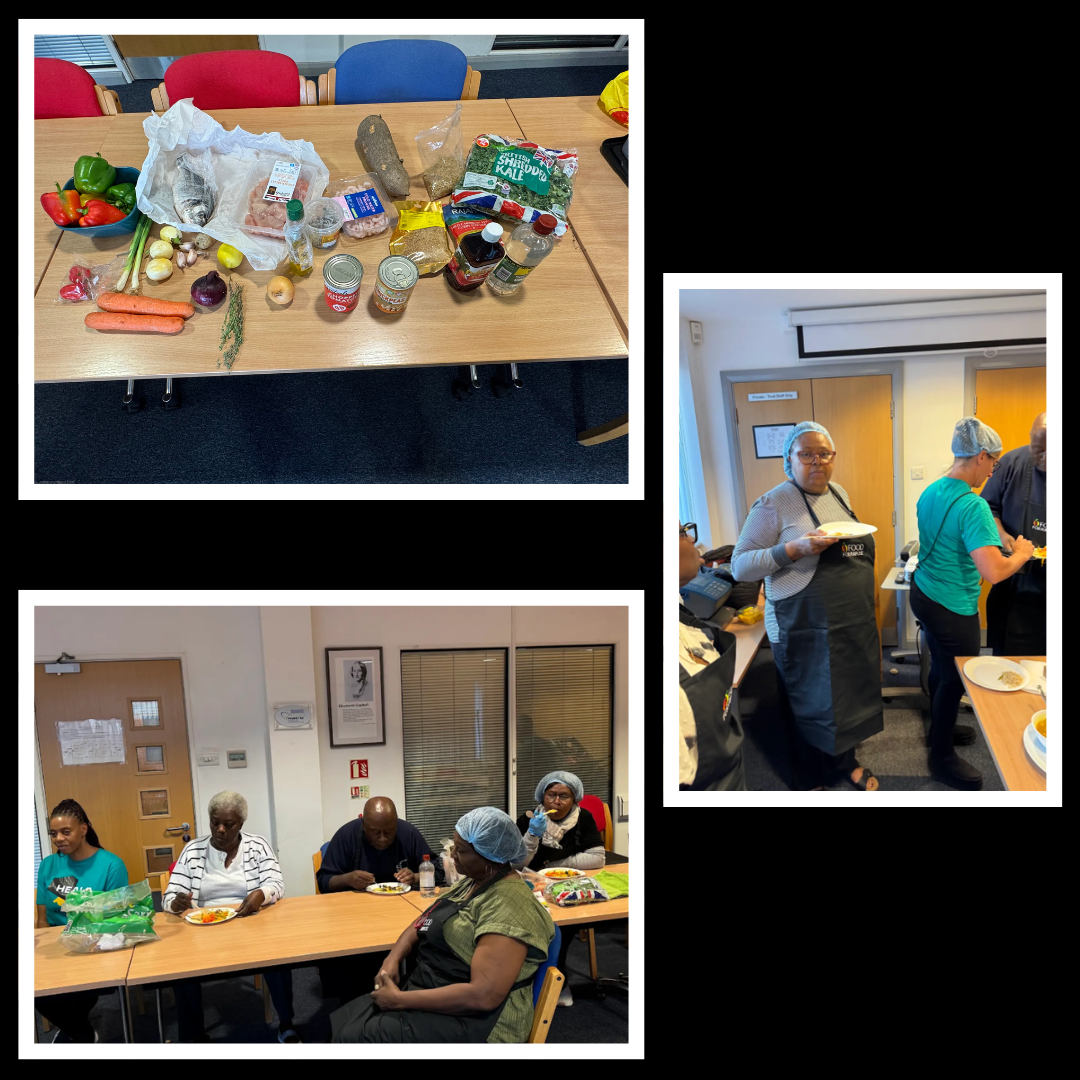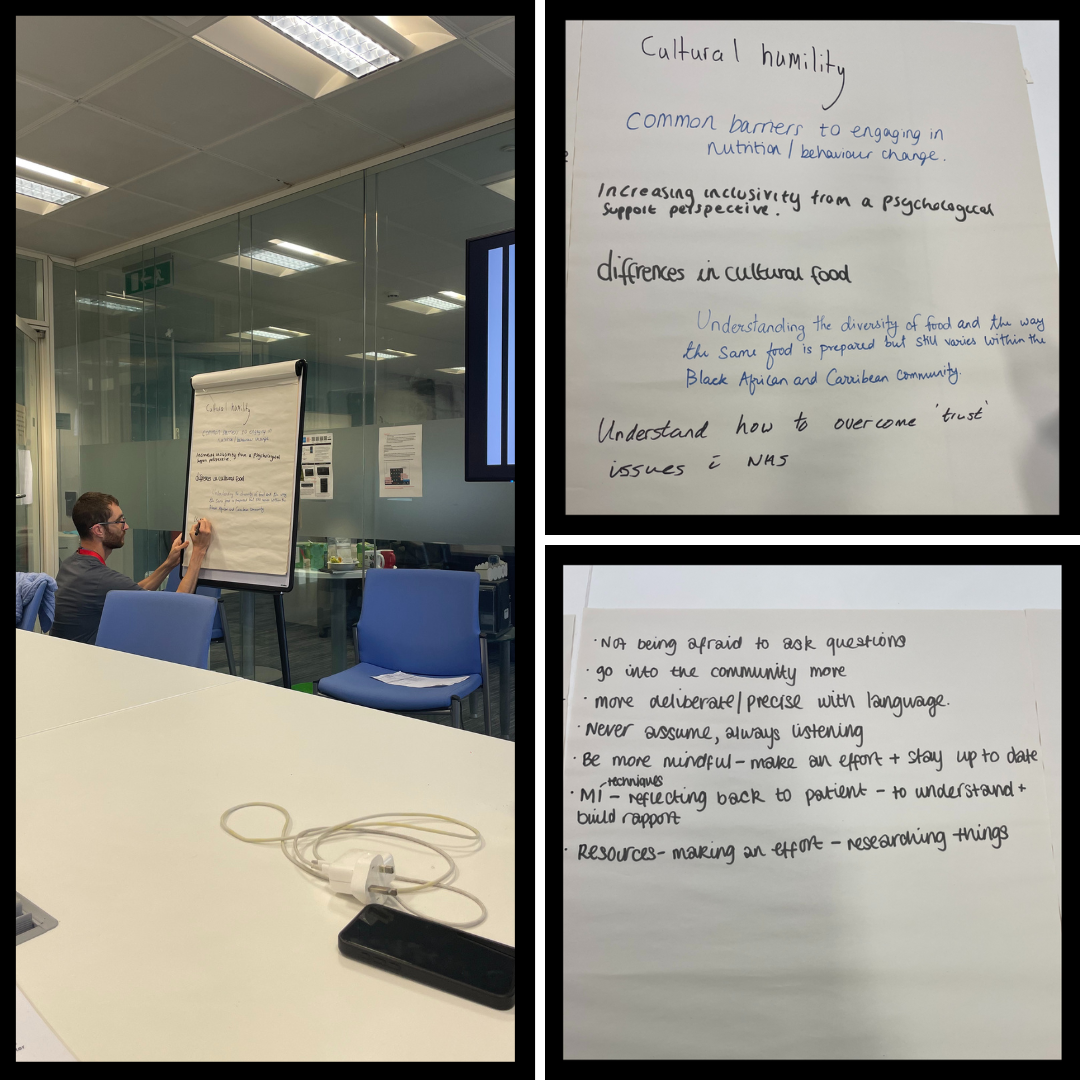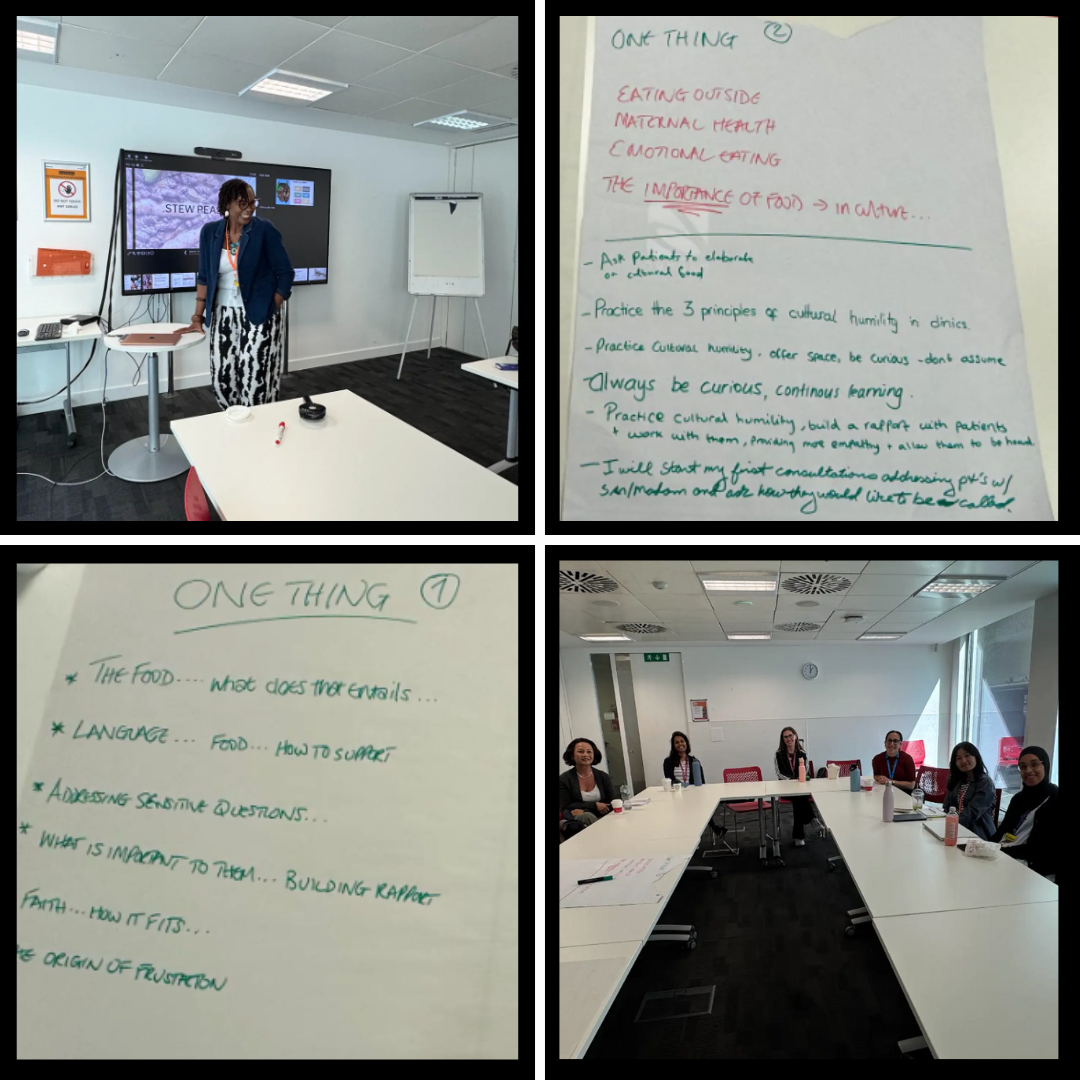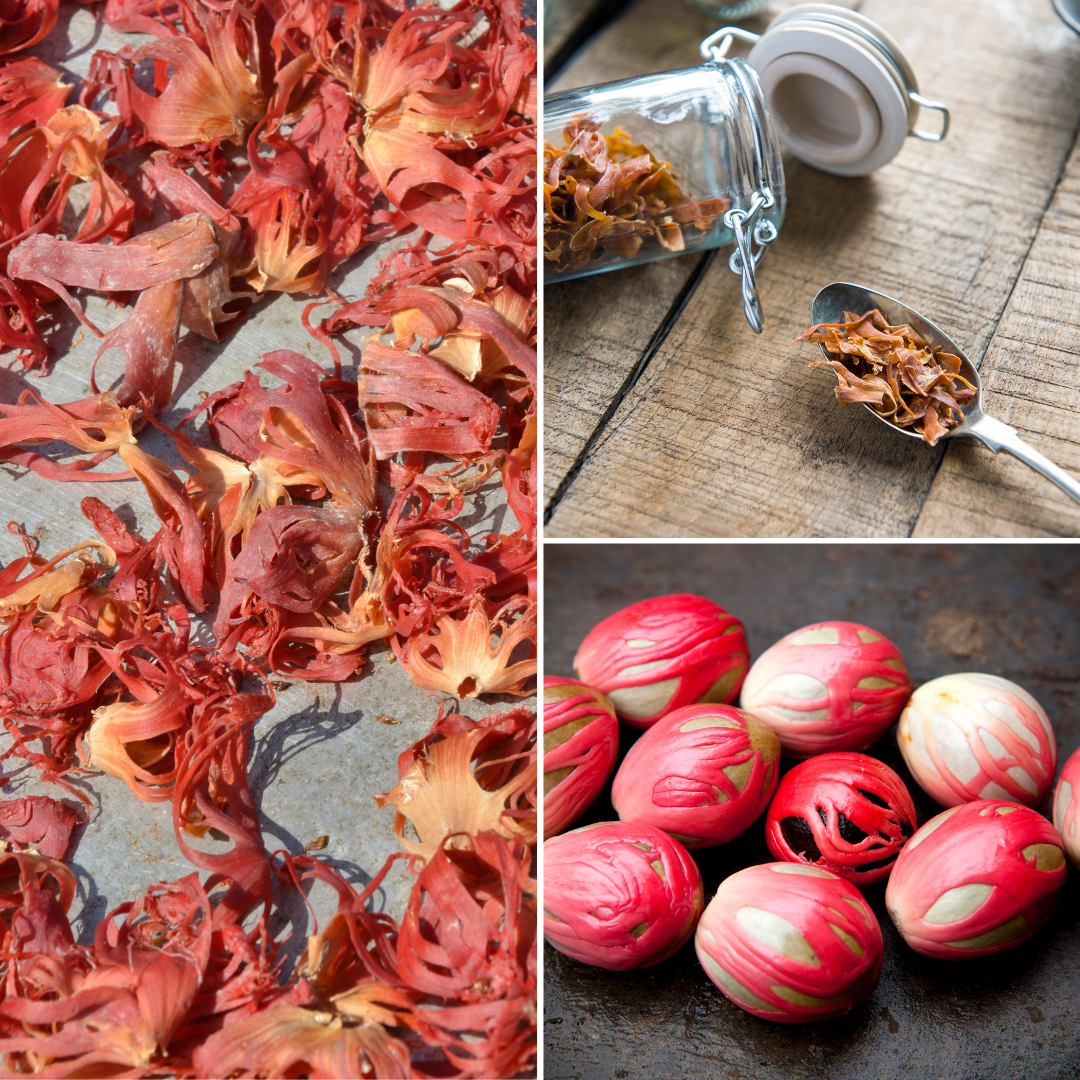Edition 39
October 2025
Introducing FFP 2.0: Our Next Chapter
By Shola Oladipo, Food for Purpose CEO
Autumn always brings a sense of change for me. The air feels different, colours deepen, and it reminds us that releasing things makes space for new growth. This October feels like that season for our organisation.
We have been focused on internal growth and investment – what we call FFP 2.0. This marks a new chapter for Food for Purpose, characterised by courage, investment, and readiness to make a bigger impact.
I feel both excited and aware of the responsibility this moment carries. I'm excited because we're investing in new systems, bold projects, and new team members to boost our marketing, operations, and growth. We understand that every step must align with our mission sustainably. Purpose demands nothing less. FFP 2.0 is already visible through initiatives like the flexibility of our HCI programme, Rest-Digest-Reset- our 21-day faith-based health journey- and upcoming community projects aimed at building trust and confidence in faith communities and health choices. These are seeds we plant now, trusting they will grow into fruitful communities across the UK over time.
This new chapter isn't just about us; it's about everyone who believes in purpose-driven change. Thank you for joining this journey into FFP 2.0—together, we are preparing for harvest.
Blessings
Shola
CEO Says - Introducing FFP 2.0: Our Next Chapter
Physical Activity Tips - Finding Balance: Stress, Fitness, and Rest
Recipe of the Month - Sweet Potato & Bean Porridge
A - Z of Soul Food - Mace
Balanced Bites - Iron Out Your Energy Problems
Diabetes Tips - Diabetes and Blood Pressure
Let’s Talk - The “Super” Scam
Health and Diet Inequalities Dashboard
The Food Foundation has released its Health and Diet Inequalities Dashboard, highlighting concerning disparities in diet and health across the UK.
The stats show that the most deprived areas, particularly in the North of England, have the highest rates of diet-related disease. Children born in these areas are more likely to develop chronic conditions and have a shorter life expectancy.
This resource is designed to help the government target interventions on food systems and child poverty. Check it out and see what’s happening in your local constituency: https://foodfoundation.org.uk/initiatives/health-and-diet-inequalities-dashboard
GoHealth
On the 12th September, Rev Dr. Gillian Straine hosted Dr Shola on the GoHealth podcast
Together they explored:
How food, family, and faith have shaped Shola’s journey.
Her Rest–Digest–Reset project and its vision for healthier communities.
The unique health challenges facing Black, African, and Caribbean communities.
Why church leaders are powerful agents of change - and why they, too, need care.
How theology, cultural relevance, and the “pace of God’s love” can transform health and healing.
Listen here: Shola Oladipo – faith, food and flourishing – GoHealth
Cooking sessions
We held six cooking sessions this month! One of the furthest was in Manchester as part of the HEAL-D NIHR-funded trial with Leicester University. We had a great time with the lively group. As ever we highlighted the importance of maintaining the beauty of African and Caribbean cultures and eating healthily.
Cultural Awareness session with the GSTT team:
Last month, Dr. Shola delivered the third and final cultural awareness session for the Healthy Living Team at Guy's and St Thomas' NHS Foundation Trust. This multidisciplinary group of dietitians, nutritionists, psychologists, and physiotherapists engaged deeply with essential topics, including:
Delivering culturally tailored healthcare to African Caribbean communities
Understanding acculturation and enculturation processes
Building trust across cultural boundaries
Navigating language and communication barriers
We're passionate about equipping healthcare professionals, researchers, and multidisciplinary teams with the knowledge and skills to provide inclusive, culturally responsive care for Black communities.
Interested in booking a cultural awareness session for your team? Contact us at admin@foodforpurpose.org
ECLAS Award
We’re thrilled to share that we've been honoured as one of the 2025 Scientists in Congregations awardees! Our project, an exciting journey at the crossroads of science and faith, has been selected as part of this ecumenical initiative bringing together innovative organisations across England and the Isle of Man.
ECLAS is led from St John’s College, Durham University in partnership with the University of York and the Church of England. The Scientists in Congregations grants are currently funded by the John Templeton Foundation.
Thank you to ECLAS and everyone supporting this mission. Together, we’re cultivating wonder, fostering deeper connections, and exploring new ways faith and scientific discovery intertwine. Stay tuned, great things are ahead!
MMR and the Black Church
As part of a project with SEL ICB, we have been working with Black church leaders in South East London to develop a much-needed audiovisual resource for discussing childhood immunisation in church-based settings. The video explores decision-making based on the Bible, cultural health beliefs and perceived benefits and risks. It will be launched officially at an upcoming breakfast meeting on Saturday 13th December hosted by House on the Rock International Church (HOTRIC), Haddon Hall, London SE1. Watch this space for registration to this important event!
National Days / Weeks / Month - September 2025
1st-31st - Black History Month
1st-31st - National Cholesterol Month
10th - World Mental Health Day
18th - World Menopause Day
29th - World Stroke Day 2025
Taster Session at Sword of the Spirit Ministries
Last month we delivered another fantastic HCI taster session with the Christ Life Men Fellowship from Sword of the Spirit church in Charlton!
This one was specially tailored to men, and…wow, they came out in good numbers.
We addressed the ‘giants’ that needed slaying in our churches and how, by managing portions, awareness of micronutrients, meal timing, fluid intake, sleep hygiene, and physical activity, our men can better serve their life purpose in their homes and communities.
The feedback was so powerful and positive, a snippet from the men’s leader:
“You have blessed us, strengthened our faith, and challenged us to grow as men of God, husbands, fathers, and leaders.”
Watch out for more pics and the next chapter in their journey with the HCI!
Launching the Healthy Church Initiative at St John’s, Plumstead
Last month, we proudly launched the Healthy Church Initiative at St John’s in Plumstead! Our first session was inspiring, we set goals, reflected on carrying God along in our health journey, and explored the importance of physical activity for our overall well-being.
We will be meeting once a month, but in the meantime, there’s plenty for everyone to work on. It was such an amazing session, and we are so grateful to Rev. Timmy and our Health Champions for embracing the HCI and serving as fantastic role models for their congregation.
Stay tuned for next month to see all the exciting progress they’ve made!
Finding Balance: Stress, Fitness, and Rest
By Precious Oladipo
FFP Director & Physical Activity Lead
We often think of stress as just feeling tense or overwhelmed, but inside the body it’s a full-on chemical reaction. When we’re stressed, our adrenal glands release cortisol, sometimes called the “stress hormone.” A little cortisol can actually help us push through a workout, but when levels stay high for too long, it becomes a problem.
Chronic stress raises inflammation in the body, making muscles ache more and recover slower after exercise. It also interferes with sleep, which is when much of our repair and muscle growth actually happens. Poor sleep → poor recovery → lower performance in the gym or in your group exercise class. And that vicious cycle can make us feel even more stressed, keeping the loop going.
On top of that, when you’re frazzled, your body is already in a fight-or-flight mode. Adding a hard workout can feel like piling stress on stress. That’s why some days your usual workout feels twice as hard, your body is busy juggling more than just your training.
So what’s the way out? First, notice what’s truly draining you. What can you put down or let go of? Sometimes it’s a grudge you’re holding, a commitment that drains you, or the constant push to “do it all.” Forgiveness (for others and yourself) can be a powerful stress reliever too.
If you’re in the UK and feeling weighed down, support is out there. Organisations like Mind, Samaritans, or NHS Every Mind Matters offer free resources and someone to talk to. And for Christians, the message of forgiveness is central: prayer can help you release bitterness, let go of burdens, and rest in God’s peace. Handing over what you can’t carry alone lightens both body and soul, creating space for healing and strength to return.
Prioritise healthy habits like gentle movement, better sleep, and breathing space to give yourself the best chance to recover, perform, and thrive.
Sweet Potato & Bean Porridge
This month's recipe features a beloved West African sweet potato porridge, a delicious, flavourful, and simple dish to prepare. We've thoughtfully adapted the original recipe to make it kidney-friendly by incorporating plant-based ingredients like black-eyed beans, spinach, or bitter leaf. Enjoying kidney-friendly meals can support your kidney health and help manage blood pressure. The specific modifications we've made are listed below. Happy cooking!
Serves: 3 - 4
Preparation time: 15 -20 minutes
Cooking time: 40 – 50 minutes
Ingredients
300g black eyed beans, washed
300g white-fleshed sweet potatoes, peeled and cut into cubes
1 medium tomato, chopped
1 red bell pepper, chopped
1 small onion, chopped
1 scotch bonnet
1 tsp thyme
1 tsp paprika
2 cloves garlic, crushed
½ tsp ground ginger
½ tbsp palm oil
1 tbsp extra virgin olive oil
300ml low-salt vegetable broth
Large handful of chopped spinach or bitter leaf
Method
In a large pan, add the beans and enough water to cover them, then cook for 15-20 minutes.
In a small pan, boil the sweet potato in plain water for 5-7 minutes, then drain and set aside to reduce the potassium.
Blend the tomato, red bell pepper, onion, and scotch bonnet, then add to the beans with the thyme, paprika, garlic, and ginger.
Add the palm oil and olive oil, cook for 5-8 minutes.
Mix in the pre-cooked sweet potatoes. Stir gently.
Pour in the low-salt vegetable broth. Cover and simmer for 10–15 minutes, or until the sweet potatoes are tender and some begin to break down naturally to thicken the porridge.
Stir in the spinach or bitter leaf and cook for 1–2 minutes until wilted.
Serve and enjoy!
Image courtesy of:
https://nkechiajaeroh.com/recipes/how-to-make-simple-and-healthy-sweet-potato-porridge/
Mace
This month, we’re celebrating Mace for the letter M!
Mace is derived from Myristica fragrans, an evergreen tree which also produces nutmeg. As two distinct spices, nutmeg is the seed and mace is the outer covering of that seed, reddish and lacey in appearance with a waxy texture.
Mace has similarities in flavour to nutmeg – warm, spicy, and slightly sweet, however it is a little stronger and more savoury than nutmeg, with notes of black pepper. Fun fact: In 17th century Europe, mace was more valuable than gold by weight!
Nutritionally, mace:
Contains antioxidants, which help to reduce oxidative stress linked to chronic disease
Is rich in vitamins such as vitamins A and C and minerals including iron, magnesium, potassium and copper - which are beneficial for general wellbeing
Has anti-inflammatory properties due to natural compounds like myristicin and eugenol
Common uses in African/Caribbean dishes
Nigeria – pepper soups and stews
Ghana – shito sauce
Jamaica – Jamaican patties, brown stew and oxtail, sorrel drink
Trinidad and Tobago – pelau (rice with pigeon peas and meat)
Where to find mace in the UK?
Mace can be found in larger supermarkets such as Sainsbury’s, in addition to ethnic food shops. It can be bought as a ground powder or as whole mace blades.
Iron Out Your Energy Problems!
Your Guide to Nutrition Made Simple!
Iron out Your Energy Problems!
Iron is absolutely vital for keeping you energised and healthy. This hardworking mineral helps transport oxygen around your body and supports your immune system. Without enough iron, you'll likely feel tired, weak, and struggle to concentrate. The NHS recommends 8.7mg daily for men and 14.8mg for women.
Getting Your Iron Fix
Red meat and offal are powerhouse sources. Other animal proteins such as fish and poultry also contain iron, but don't worry if you're plant-based! Beans, lentils, nuts and seeds, dark leafy vegetables (callaloo, kale and spinach) and fortified cereals are excellent alternatives. Dried fruits like apricots make tasty iron-rich snacks too – though enjoy these in moderation due to their sugar content.
The Iron Absorption Game
Here's where it gets interesting: your body absorbs haem iron (from meat and fish) much more easily than non-haem iron (from plants). But there's a simple trick to boost absorption, pair iron-rich foods with vitamin C! Think about adding bell peppers to your lunch or dinner, or having a glass of orange juice to go with your breakfast.
What Blocks Iron?
Tea and coffee can interfere with iron absorption, so try to drink them between meals rather than with iron-rich foods.
Know Your Status
Iron deficiency is surprisingly common in the UK, particularly among women of childbearing age, vegetarians, vegans, and frequent blood donors. If you're feeling constantly tired or suspect you might be low on iron, don't guess, speak to your GP about a simple blood test. Getting the right diagnosis means getting the right treatment for your individual needs.
Diabetes and Blood Pressure
By Modupe Peters
FFP Director & Diabetes Lead
Every September in the UK, blood pressure checks are done as part of the ‘Know your Numbers’ week to raise awareness about the importance of regular blood pressure monitoring in preventing heart attacks and strokes. Did you get yours checked?
What is blood pressure?
This is the force your heart uses to push blood through your blood vessels and around your body. It is measured in millimetres of mercury (mmHg). It’s written like this: 130/80mmHg, and you will hear your nurse/doctor say ‘130’ over ‘80’.
Why is blood pressure important?
Having diabetes and high blood pressure makes heart disease, stroke, kidney and eye problems more likely.
The good news is that managing blood pressure helps protect your heart, kidneys and eyes.
What should my blood pressure be?
Aim for below 140/90mmHg, but it is important to speak to your healthcare team about your individual target
How can I lower my blood pressure?
Eating a healthy, balanced diet
Cut down on salt, the recommendation is less than 1 teaspoon/6g a day
Choose grilled, boiled or steamed foods instead of fried ones.
Keep to a healthy weight
Move more, aim for at least 30 minutes of physical activity for example, walking 5 days a week
Quit smoking to prevent blood vessel damage
Limit alcohol intake, keep within 7-14 units a week
Try to manage stress – relaxation, walking or hobbies can help
Medication – take your medication regularly if you have been prescribed a blood pressure-lowering medicine
It’s really important to know that you might have high blood pressure and feel fine, because there aren’t usually any symptoms. It is therefore important that you never miss any blood pressure check or your diabetes annual review. Controlling both blood sugar and blood pressure helps to reduce your risk of diabetes complications. Speak to your healthcare team if you have any concerns about your blood pressure.
The “Super” Scam
Ahhhh, "superfoods" – because apparently regular foods weren't pulling their weight. This marketing marvel has convinced us that blueberries possess supernatural powers and quinoa can leap tall buildings in a single bound.
What makes a food "super" exactly? Is it the price tag? The Instagram potential? The ability to make you feel morally superior at the grocery store? Spoiler alert: there's no official superfood certification committee handing out certificates to overachieving fruits and vegetables.
We've crowned everything from açaí berries to spirulina as nutritional superheroes, while humble carrots and apples sit in the corner, wondering what they did wrong. The truth is, these foods are nutritious – but so are countless others that didn't hire a good publicist.
The real superpower lies in eating a varied, balanced diet. No single food will transform you into Captain Nutrition, sorry for bursting your bubble...

Let's keep in touch
For general enquiries about Food for Purpose:
For Newsletter enquiries / content suggestions:
